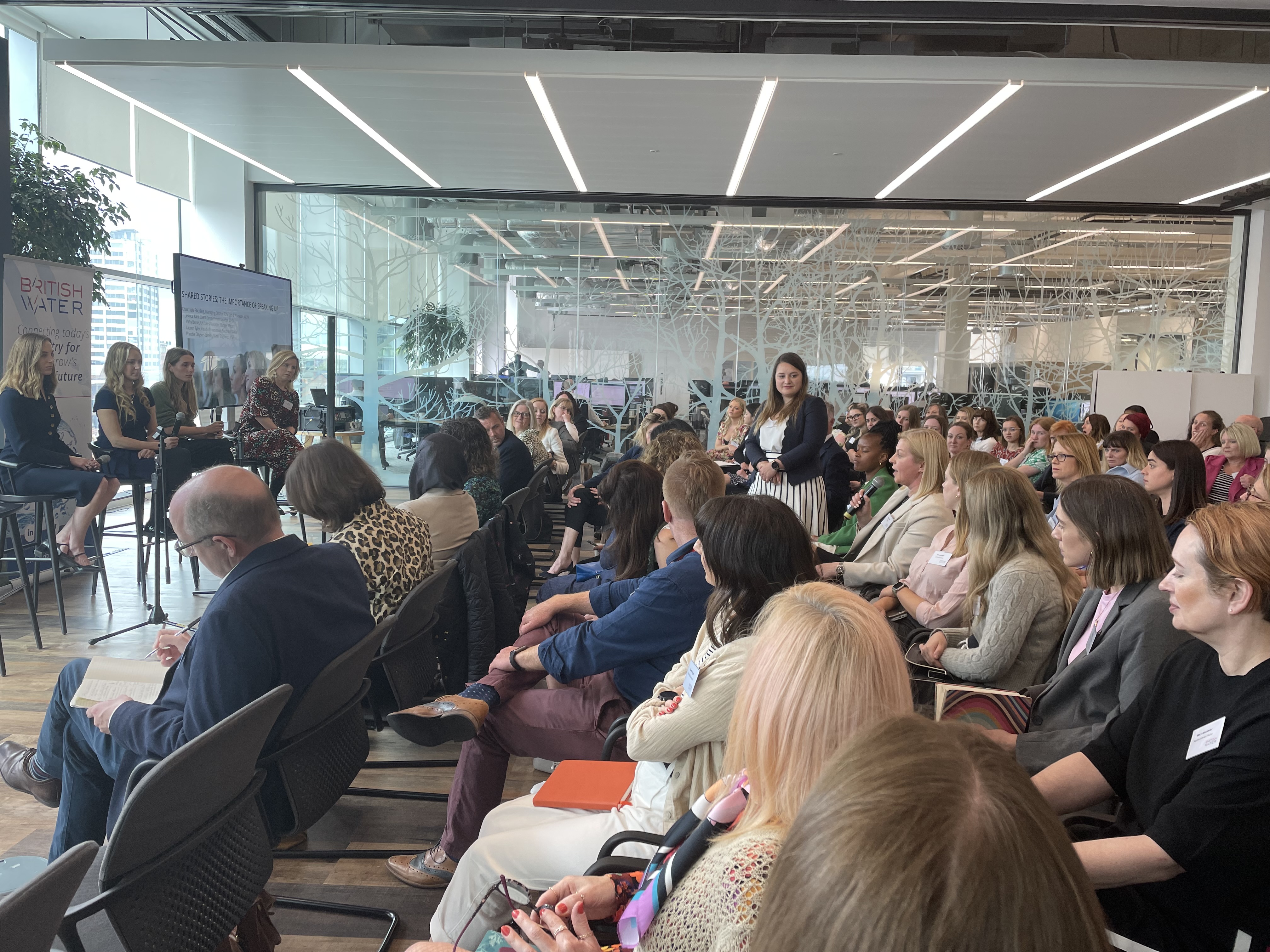British Water called, and women across the water sector responded.

The Women on Water Conference, hosted by British Water at the WSP office in Birmingham, was fully sold out within days with a long waiting list. An event in demand, not only for the content of the conference, but also for the opportunity to share experiences and network amongst like-minded women and men in the water industry.
The event started off with an inspiring keynote speech by Tanya Dady, who spoke about her sporting career in boxing, leading her to become the two times national champion and representing England internationally. Tanya shared about her first experience in the boxing gym and how she was rejected with the phrase ‘Sorry Love, we do not train girls’. This made her pursue her dreams even more rather than stopping her. Clear goals, dedication and not accepting ‘No’ as an answer are parts of the principles that helped Tanya in her boxing career.
Thereafter came three panel discussions, the first about ‘how to thrive after setbacks’ and how we can manage them best, then on ‘the importance of speaking up’ and how we can be empowered to speak up more often, and last talking about ‘the importance of advocates’ and why supporting women does not equal advocating for them.
Panellists shared their own stories and examples within their careers and the impact these had on them. What stood out was the camaraderie and drive for positive change that every single attendee echoed during the day. The afternoon was filled with two break-out sessions on all three panel subjects, allowing attendees to further discuss the topics and develop actions how we can further advance change for women in the water sector.
WUN Director, Sarah McMath, hosted the panel on advocacy and WUN Director Louise Parry was one of the panelists. WUN Advocate Julia Stichling hosted the panel on Speaking Up. The cooperation with British Water, is of high importance to the WUN and we would like to thank Lila Thompson and her team for having us.
In a time where a skill gap is prevalent and AMP8 will see a level of investment the water industry has never seen before; it is important to retain employees and create inclusive cultures. In a recent survey conducted by the WUN on the topic of unconscious bias, responses showed that a third of women in the utility sector are considering leaving the industry in the next 1-3 years. Around 41% of responders felt that their voice is not heard at meetings, and they are interrupted when speaking. Around 49% believe their opinion is not valued as much as their counterparts. And a shocking 84% answered that women are given more administrative tasks, such as taking notes or preparing the tea.
Events like the Women on Water conference are the perfect starting point for open discussions and instigating change in the industry. By gathering individuals that want to affect change, we create a safe space for important conversations and ideas to be discussed and shared. Save the date for the next Women on Water event on the 10th of October in Manchester.
Julia Stichling, WUN Advocate